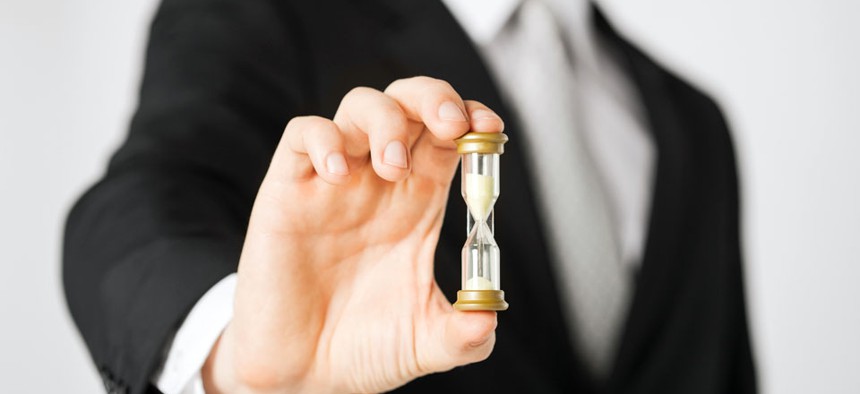
Syda Productions/Shutterstock.com
Decision-Making: Just Get It Over With
The psychology of doing unpleasant tasks sooner, which really is better
There’s a classic experiment on delayed gratification, in which kids who chose to wait and eat two marshmallows later, rather than eating a single marshmallow right away, tended to achieve more later in life. Discipline in the face of these sticky sugar blobs seemed to indicate some sort of inner strength needed to navigate this thorny world that rapid marshmallow-eaters just did not possess.
But what if those kids hated marshmallows? Would they be lauded for their self-control then? What if the marshmallow was not a marshmallow, but physical pain? Good things come to those who wait, but sometimes, bad things come too.
When it comes to future bad things—taxes, confrontations, pelvic exams—you can either put them off or get them over with. And studies have shown that people prefer to get it over with.
In a recent study published in PLOS Computational Biology, researchers basically did the marshmallow experiment, but with pain. Do you want your electrical shock now or later? For the most part, people chose to take the shocks sooner, even if they had to take more shocks to avoid the delay.
Looking at decision-making at a basic level, it makes sense that people would seek out rewards and avoid punishments, and research shows that they do. But of course, there are more factors at play in most decisions we make in real-world settings. Sometimes, as in this study, a punishment is unavoidable; it’s just a matter of when.
The factor at play here, as anyone who has ever lied awake at night anticipating all of their own imminent metaphysical electric shocks knows, is dread. The researchers here describe what they call “exponential dread”—dread that increases exponentially as the thing you’re dreading draws nearer. Participants were also more averse to pain that came farther in the future, though the dread increased by smaller increments as the wait grew longer. So by choosing to take the pain now, participants were avoiding a punishment: the pain of the dread itself.
The anticipation of something unpleasant can be processed a lot like pain by the body. A 2012 study found that people with high levels of math anxiety, when faced with a looming math problem, had increased activity in regions of their brains associated with threat detection and “visceral pain.”
In 2006, researchers did a very similar electric shock study, while scanning the brains of the participants. They had a choice between a higher voltage sooner, and a lower voltage later (90 percent in 3 seconds or 60 percent in 27 seconds). They divided participants into “extreme dreaders” and “mild dreaders,” and found that, based on differences in brain activity between the two, dread that drove their decision-making came from, in large part, the attention the person was paying to the part of their body that was getting shocked (in this case, a foot).
“Although dread is usually thought of as an emotion based on fear and anxiety, our localization of dread to the posterior elements of the [brain’s pain] matrix suggests that dread has a substantial attentive component,” the study reads. The researchers suggest that distracting the person from thinking about their soon-to-be-shocked foot could decrease dread. The study did not address the efficacy of distracting yourself from emotional or spiritual dread, but it's probably worth a shot.
All of this makes getting it over with seem like a logical response to impending future bad stuff, maybe even the responsible thing to do, if the thing you’re dreading is something like “going to the doctor” or “paying your bills.” In fact, Logan Sachon has a recurring weekly post on The Billfold called “Do 1 Thing” in which, every Thursday, she tries to motivate and encourages readers to “do that 1 thing you don’t want to do but also don’t want to continue thinking about doing,” things like updating her resume or opening a savings account.
But if the thing you’re dreading is performance-based, like, say, taking the SATs, rushing to get it over with could lead to worse results than you were hoping for. In one weirdly specific example that I dredged up from the depths of Google Scholar, a study on soccer penalty shootouts noted that “high preparation speed was related to low performance,” even though many people who “choke under pressure” tend to take a long time to do so.
“One explanation for this discrepancy may be linked to the dread of waiting in this particular real-world situation,” the study reads. “After players initially have spent time waiting (in the mid-circle and while walking to the penalty mark) they may hurry to get the stressful situation 'over with' when they ultimately can time the shot themselves… Consequently, it is possible that players initiate their shots before they have completed the necessary preparatory actions and that this contributes to the poor performance.”
So there’s that to consider.
It may also just be a matter of personal preference, the 2006 study posits. Over time, you develop habits with regard to waiting, and whether you tend to put things off or get them over with most of the time, it seems likely that when faced with a new dreadful situation, you’ll deploy your signature move.
(Image via Syda Productions/Shutterstock.com)






